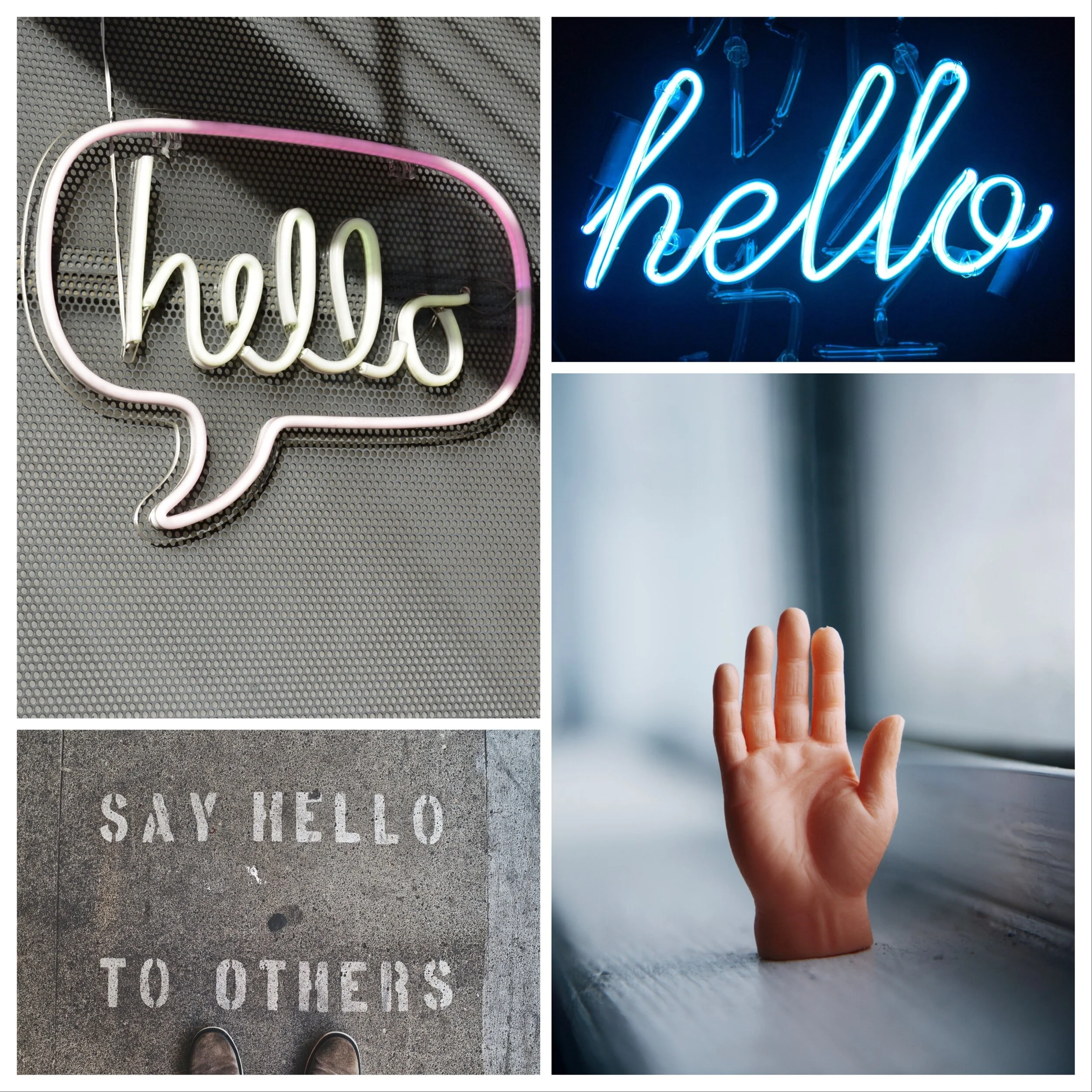You had me at Hallo
Despite studying German at school, it wasn’t until I moved to Germany that I learned the word ‘Servus’, which simply means ‘hello’ and is used mostly in the south of the country. I may not have been the best student, but I feel like I would remember ‘Servus’, it does have a certain ring to it after all. Perhaps it was one of the first things we learned, which is why my memory of it is non existent, given those classes were over 25 years ago. It seems odd that ‘Servus’ didn’t come up, given it’s easier to say than the more formal ‘Guten Tag’. The same goes for ‘Moin’, a greeting associated with the north of Germany, which rolls off the tongue in a peculiarly satisfying way. I suppose that’s the nature of language teaching - only so much time. One can’t focus on all the different ways to say hello, when you have so many things to say about prepositions and verb endings. It may seem a minor complaint, but having multiple ways to say hello is a particularly useful skill in Germany, or Bavaria at least. It does feel like I say hello to a hell of a lot more strangers than I did when living in the north of England, which is considered at the friendlier end of the English spectrum.
Any situation where there are less than five people in vaguely close proximity might elicit a German ‘Hallo’. So much for the stern, impolite German stereo-type, I guess. There are other times where a ‘Hallo’ is considered mandatory, such as at a doctor’s waiting room or passing each other on a steep mountain path. I don’t think the two are particularly connected, except that they are considered the appropriate times to say ‘Hallo’ or an enthusiastic ‘Servus!’. Other times, it might be that you catch someone's eye in passing and they’ll say hello, which frequently catches me off guard.
Photo by Kevin Butz on Unsplash
Saying “Hello” to people you have never met in the UK, especially while living in a city, is liable to confirm that you are some kind of weirdo. Public transport is especially off limits. Sure, greeting and thanking a bus driver are fine, but engaging anyone else is frankly a lottery. Buses and trains seem to be for quiet reflection, staring at phones or for reading. It’s bad enough sitting next to other people, let alone engaging them in what might become a conversation - no one wants that. There are times where strangers will converse with each other, but generally these are at moments of collective annoyance, such as in long queues or when there is a delay in public transport, but that will simply be an exclamation of “bloody hell” or “This is typical” rather than a nice greeting. Invisible social rules govern a lot of British life, which explains all the drinking.
In Germany, the chances of saying ‘Hallo’ and getting a response are high, but not guaranteed. Sometimes it’s ignored or it wasn’t said firmly enough, but the odds are usually in your favour. Greetings in passing might miss, but I’ve never seen a waiting room not respond in a chorus of greeting when prompted. Villages are also likely hot-spots for a friendly ‘Guten Morgen’ or ‘Servus’ in passing, but I’ve also been met with it in cities too. I would say it’s the base level of politeness, a useful marker perhaps. However, at the same time that the word ‘Hallo’ is a friendly greeting, it also has a darker side, one that was also not on my school curriculum.
‘Hallo’ has become the preferred way of calling someone’s attention to a problem, specifically a social infraction of some kind. Most often I hear it at the supermarket, when someone is absent mindedly standing in the way of another. The injured party will be heard to say ‘HALLO!’ in a sharp tone and then stare laser-eyed at the perpetrator. Other times, it will be a way of calling out someone for breaking some social norm, or for not paying attention. It’s funny to think that the British invented tutting as a reaction to the frustrations of daily life; indeed, it seems almost comically culturally on point for Germans to bellow ‘HALLO!’ at those who break the unwritten, and more often written, rules of daily German life, whereas the British simply mutter.
Photo by Adam Solomon on Unsplash
Since most language teaching, at least in Britain, fails to go deeper than ‘Guten Tag’, there are often some epic culture clashes to be seen. Tourists are especially likely to face the wrath of a ‘HALLO!’ and respond with a cheery ‘Hello!’, and if you’re incredibly lucky, a nice wave. As you can imagine, this only ever leads to more ‘HALLO!’, which is where you begin to realise how ineffective the greeting is as a warning or reprimand. ‘Hallo!’ , if meant to call attention to an issue, isn’t at all effective if it can be dismissed with a wave and a jaunty nod.
Like most linguistic short-hand, I like the German ‘Hallo’. Anything that allows me to be polite and upbraid a street urchin for some minor social infraction seems a useful thing to know. Admittedly, being on the wrong end of a German hello is not the most fun, especially if it’s repeated with ever increasing levels of shrillness. It might be better to open with something more patient, but the immediacy of reaction to ‘HALLO!’ suggests its usefulness. Being aware of it is important, if only to avoid it.
Proofreader: @ScandiTina
Pictures:
Photo by Pablo Gentile on Unsplash
Photo by Sharon McCutcheon on Unsplash
Photo by Adam Solomon on Unsplash
Photo by Kevin Butz on Unsplash
Photo by Ioana Cristiana on Unsplash







